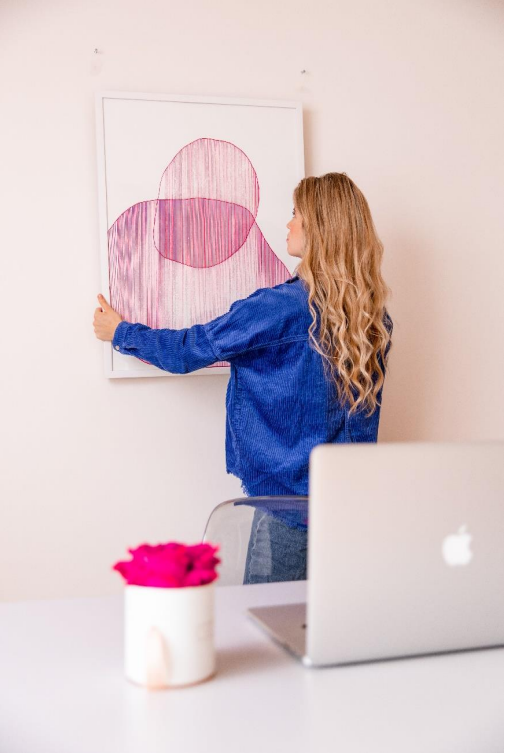Introduction:
Collecting art can be a rewarding and enriching pursuit, but the high prices associated with established artists can make it seem out of reach for those on a budget. However, with some knowledge and strategic planning, it is possible to build an impressive art collection without breaking the bank. This comprehensive guide will provide valuable insights and tips for affordable art collecting, allowing you to embark on this exciting journey while staying within your financial means.
Understanding the Art Market:
Before diving into art collecting, it's essential to grasp the dynamics of the art market. The art world is vast, encompassing a wide range of mediums, styles, and price points. While masterpieces by renowned artists command astronomical figures, there are numerous opportunities to acquire quality works from emerging or lesser-known artists at more accessible prices.
Defining Your Collecting Focus:
One of the first steps in budget-conscious art collecting is to define your area of interest. Narrowing your focus will not only help you develop a cohesive collection but also allow you to become an expert in a specific genre or medium. Consider your personal preferences, space constraints, and budget when deciding on your collecting focus.
Exploring Affordable Art Sources:
With a clear direction in mind, it's time to explore the various sources of affordable art. Here are some options to consider:
- Art Fairs and Open Studios: These events provide direct access to artists, often at lower prices, as there are no gallery commissions involved.
- Online Marketplaces: Numerous reputable online platforms, such as Artpiq offer a wide range of affordable artworks from emerging and mid-career artists.
- Gallery Exhibitions: While some galleries cater to high-end collectors, many also showcase affordable works by up-and-coming talents.
- Print Editions and Multiples: Limited-edition prints, photographs, and multiples can be a cost-effective way to own works by renowned artists.
- Local Art Communities: Explore art shows, co-ops, and collectives in your area to discover talented local artists and support your community.
Click here to see beautiful artworks from Artpiq
Building Relationships and Networking:
Developing relationships with artists, gallerists, and fellow collectors can open doors to exclusive opportunities and insider knowledge. Attend art events, join collector groups, and engage with the art community to expand your network and gain valuable insights.
Budgeting and Financial Planning:
Successful art collecting on a budget requires careful financial planning. Set a realistic annual budget and stick to it. Consider alternative payment options, such as installment plans or art financing, to make larger purchases more manageable. Additionally, explore tax benefits or incentives for art collectors in your area.
Caring for Your Collection:
Proper care and maintenance are crucial to preserving the value and longevity of your art collection. Learn about appropriate framing, storage, and display techniques to protect your investments. Additionally, consider acquiring art insurance to safeguard your collection against potential losses or damages.
Expanding Your Knowledge:
Continuous learning is vital in the art world. Attend lectures, workshops, and exhibitions to deepen your understanding of art history, techniques, and market trends. Read reputable art publications, follow influential art critics and curators, and engage with the community to stay informed and refine your collecting strategy.
Frequently Asked Questions:
- How much should I budget for my art collection?
A: The amount you budget will depend on your personal financial situation and priorities. As a general guideline, experts recommend allocating between 3-5% of your annual income towards art collecting.
- Is it better to focus on a specific artist or style?
A: Focusing on a particular artist or style can help you build a cohesive collection and become an expert in that area. However, some collectors prefer to diversify their holdings across various genres and mediums.
- Should I buy art as an investment or for personal enjoyment?
A: While some artworks may appreciate in value over time, it's generally advisable to collect art primarily for personal enjoyment. Investment should be a secondary consideration, as the art market can be unpredictable.
- How can I authenticate and verify the provenance of affordable artworks?
A: When purchasing from reputable sources, such as galleries or online marketplaces, the artworks should come with documentation of authenticity and provenance. Additionally, you can consult art experts or appraisers for verification.
Conclusion
Art collecting on a budget is an achievable goal with the right knowledge, strategy, and passion. By exploring affordable sources like Artpiq, building relationships, and continuously expanding your understanding of the art world, you can curate a meaningful and valuable collection that reflects your personal taste and appreciation for art. Embrace the journey, and remember that the true joy of art collecting lies in the discovery, appreciation, and emotional connection with the works you acquire.


